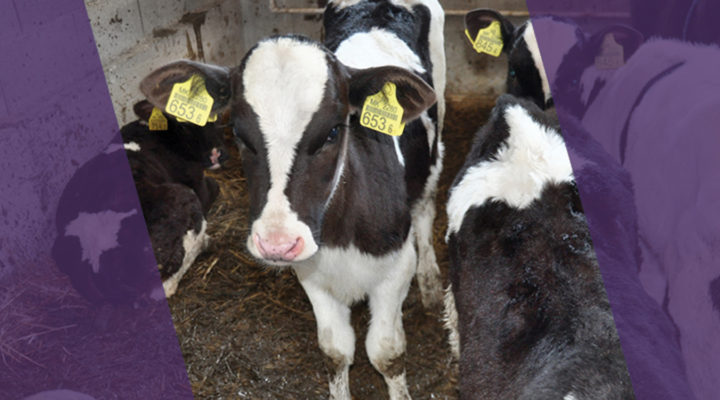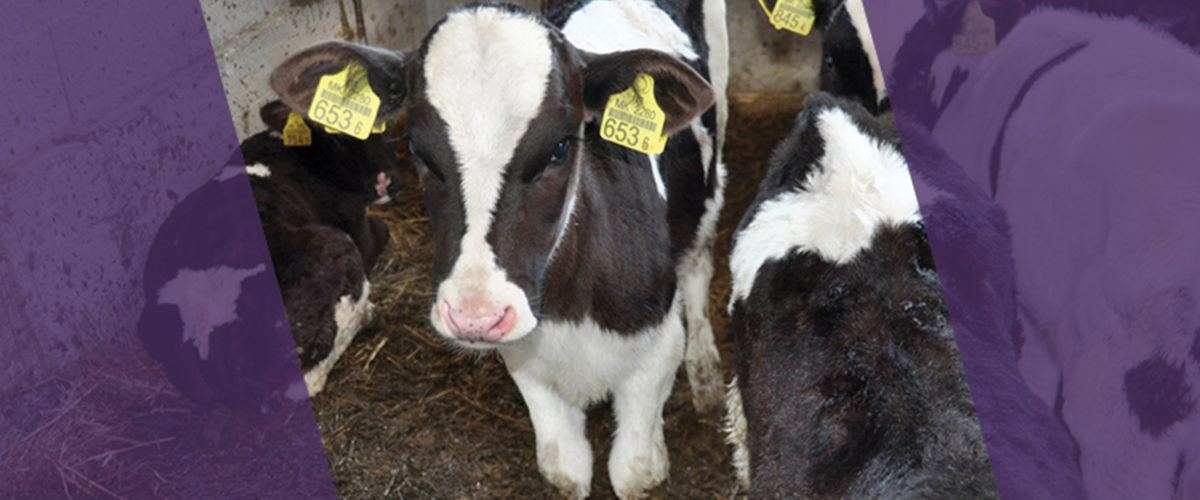CBF field personnel form agricultural partnership focused on sustainability and empowerment in Macedonia
By Blake Tommey
“More milk, more money,” says Gazmend Muharemi, co-founder of Aya Farm in northwest Macedonia.
For Muharemi and his partners, Cooperative Baptist Fellowship field personnel Alicia and Jeff Lee, however, money generated by cow banking means renewal — not for their own pocketbooks — but for the community they love. Cow banking begins when Aya Farm donates a newborn female calf to a local farmer or a family in need of more income. Partnered closely with Muharemi and the Lees, the farmer then cares for the calf until it can produce offspring and give milk. In the end, the farmer generates sustainable income by selling milk and other dairy products, and ultimately returns the offspring of the cow for donation to other farmers.
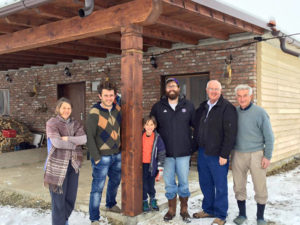
CBF field personnel Alicia and Jeff Lee work alongside Gazmend Muharemi and Aya Farm in northwest Macedonia with a cow banking program, generating sustainable income for farmers in the region.
“Our farm’s mission is to help others, to help the people who need it most,” Muharemi said. “The goodness of my life depends on everyone having a good life — especially here in Macedonia. We donate cows to these farmers who are so happy because they are receiving a donation like this for the first time. They are doing such good work by growing them and by growing their farms. Together, we can change the environment in Macedonia and make a better life for everybody. That is what obligates us to do this work.”
Together, Muharemi, the Lees and their community are partnering to renew God’s world in northwest Macedonia. Through sustainable farming, cow banking and economic empowerment in the Bogovijne and Tetevo municipalities, that partnership is fostering transformational development among a community all but forsaken by a shrinking agricultural industry. Ultimately, Jeff noted, this work is about giving hope to people who see no future.
Since the republic declared independence from Yugoslavia in 1991, Macedonia’s agricultural sector, comprising virtually half of the country’s population, has struggled to ascend on a European stage. In 2014, the World Bank Group even supported an agricultural strengthening and investment project, emphasizing that Macedonian farmers faced increasing threats in economic globalization, susceptibility to extreme weather, and an overall lack of technological investment. Its greatest assets — rice, tobacco, wheat, corn, lamb, dairy, livestock and an abundance of farmland — continue to be restrained by harsh economic realities.
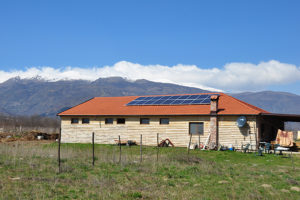
The mission at Aya Farm is to help others, providing opportunity to farmers in the face of a shrinking agricultural industry.
When Alicia and Jeff arrived in Macedonia six years ago, they were drawn to the rural communities outside the capital city Skopje where people felt restraint most powerfully. As they worked to build relationships with local farmers, the Lees promptly met Muharemi, an ad-man-turned-farmer, seeking to produce organic dairy products and to invest himself in the lives of farming families. With big-hearted support from CBF churches, the Lees paired funding for cows with Muharemi’s land and Aya Farm was born. The entire purpose, however, is to place the power and resources in the hands of local farmers, Jeff said.
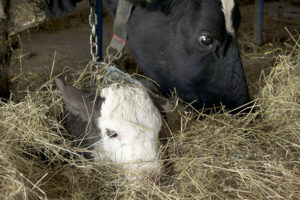
Cow banking begins when Aya Farm donates a newborn female calf to a local farmer or family, who then care for the calf until it can produce offspring and give milk.
“We want to empower local people to move forward and help each other. With the farm, we’re able to pour ourselves into the lives of these farmers and really build a relationship over time. But they’re also coming together to meet on their own and to live through this collectively. With enough adult cows, we’ll have a new calf every month or so and will be able to continue to give out cows throughout the year. Once calves start coming back to us, it all becomes self-sustaining. The whole purpose is to continue these relationships beyond a transaction with a cow,” Jeff added.
Aya Farm now maintains a stock of more than 20 adult cows and, in addition to cow banking, delivers farm-to-table dairy products to the surrounding villages in Bogovijne and Tetevo. As of 2016, Aya Farm also operates fully on solar power, independent from a shifty public power grid, and has become the first solar-powered farm in Macedonia. Despite such a historic and sustainable investment, it’s the human capital and not the automation that makes Aya Farm transformational, Jeff said.
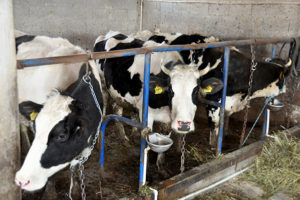
As Gazmend Muharemi and the Lees increase their stock and donate more calves, they continue to facilitate deeper relationships with recipients, enabling them to continually invest in and empower their rural community as local owners of the project.
Jimmy, a local Albanian farmer, received Aya’s first calf donation when he was forced to sell his own successful stock to pay his extensive medical bills. Now on his feet, Jimmy is a regular farmhand at Aya, lending his own tractors and even teaching Muharemi how to be a dairy farmer. Most recently, through Aya’s ongoing process of identifying candidates, Muharemi and the Lees began working with a group of local pastors who have formed an intentional farming collective and who plan to share the income generated by a communal stock of dairy cows. With new revenue, the pastors will not only be able to sustain their own ministry but also plan to distribute benevolent funds to parishioners in need at their respective churches. The farm is also in the process of expanding to add a milk factory with two new partners, Veton Kodra and Valon Salihu.
As Muharemi and the Lees increase their stock and donate more calves, they continue to facilitate deeper relationships by requiring recipients to meet regularly with them and with each other. This continuity not only facilitates good feeding, care and veterinary habits among dairy farmers, Alicia explained, but more importantly, allows the partnership to keep investing in relationships and empowering their rural community as the true owners of the project.
“Our work here has all been because of building a relationship with somebody and wanting to know what they’re interested in doing in their country,” Alicia said.
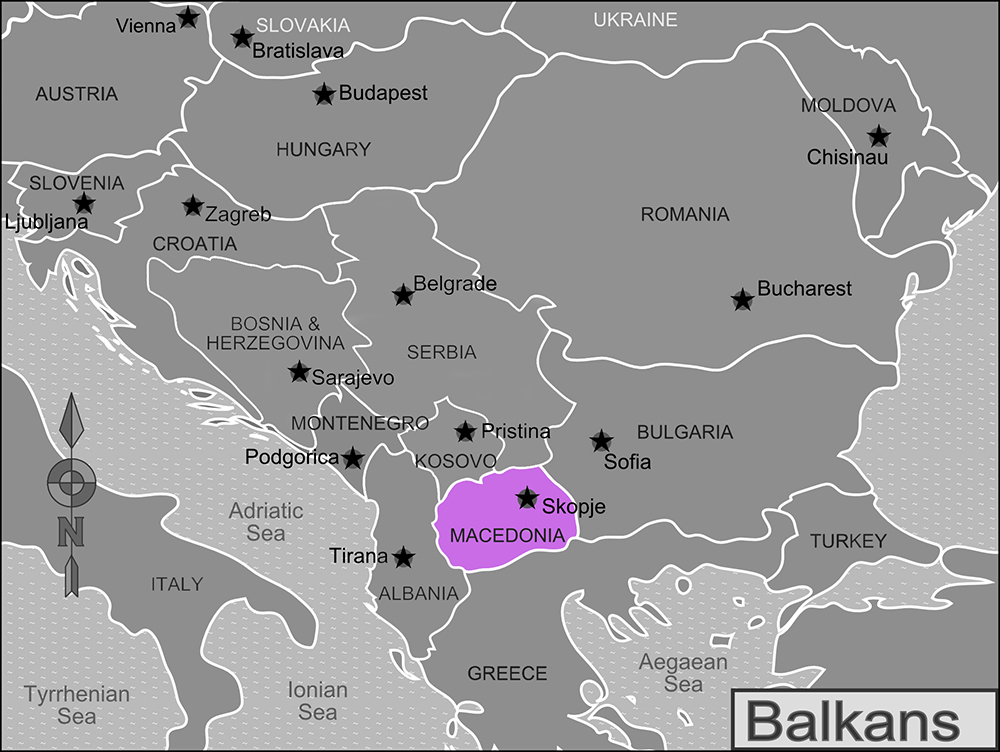
The land is Macedonia’s greatest resource, and the ministry of Aya Farm and the Lees will continue to foster economic development and increase hope for the Bogovijne and Tetevo municipalities.
“We love that, because we create a deeper connection not only with the work we’re doing, but with the people with whom we get to work. Aya Farm wasn’t even part of the plan. It formed out of relationship and mutuality. Our ministry philosophy means that we are not the owners of a project, and we fully believe that this effort would survive without us. For us, it’s crucial to have local people who are dedicated, who love Macedonia and who are motivated to do this kind of work beside us.”
For the Aya Farm partnership, investment from farmers like Jimmy and the pastor collective is only early evidence that Macedonians still see hope for renewal. While many of their Macedonian friends often chatter about the “American dream” or the “Canadian dream,” people are beginning to dream the Macedonian dream, Alicia said. As Aya Farm grows, they hope to increase their stock of dairy cows and begin producing more milk, cottage cheese, butter and sour cream for the people of Tetevo and Bogovijne. But as their relationships deepen, the ministry of Aya Farm will ultimately increase hope for a future in Macedonia.
Gazmend Muharemi speaks often about Macedonia’s greatest and yet least-used resource — the land, Alicia noted. As Muharemi, the Lees and their community continue to foster economic development through farming and cow banking, they are raising up hope from Macedonia’s own soil and showing a rural community the strength already stirring in their barns, hearts and lives together.
The CBF Offering for Global Missions supports the long-term presence of field personnel like Alicia and Jeff Lee. Give a gift to support the Offering at http://www.cbf.net/ogm/.

